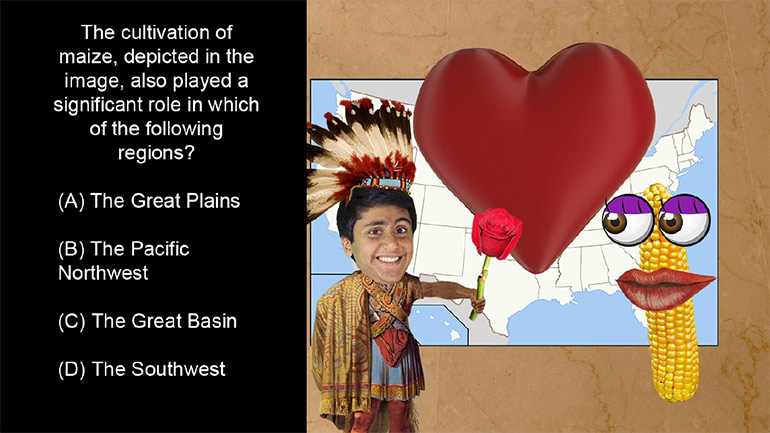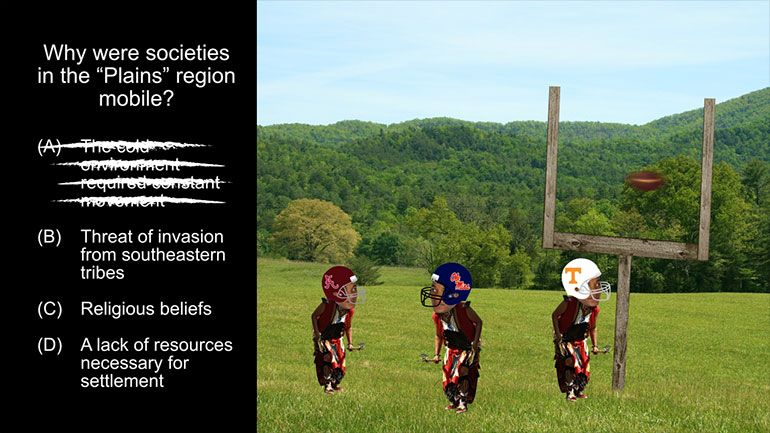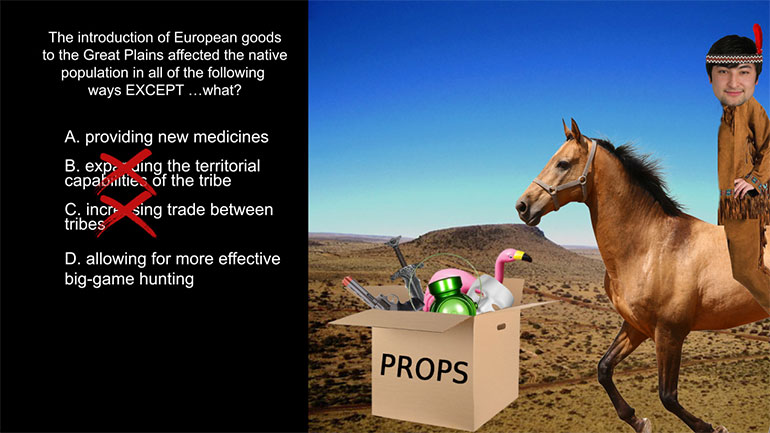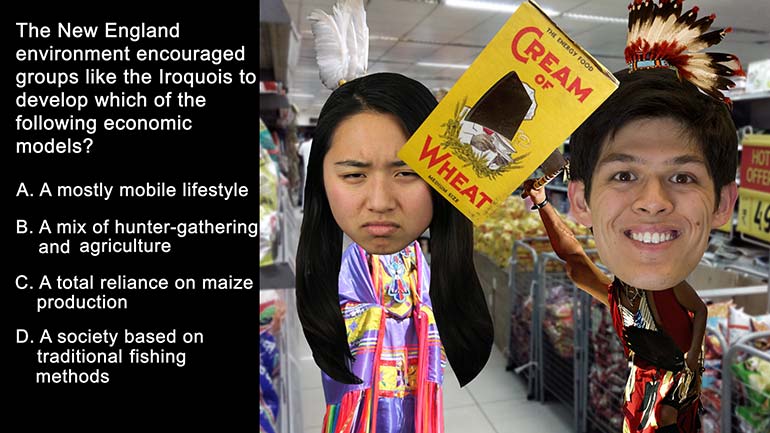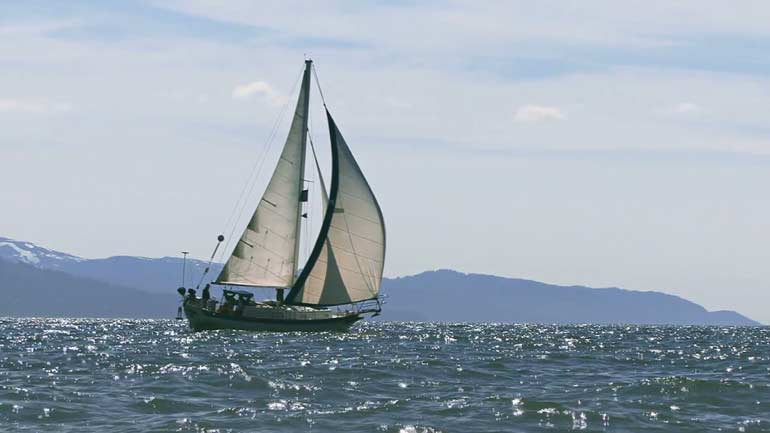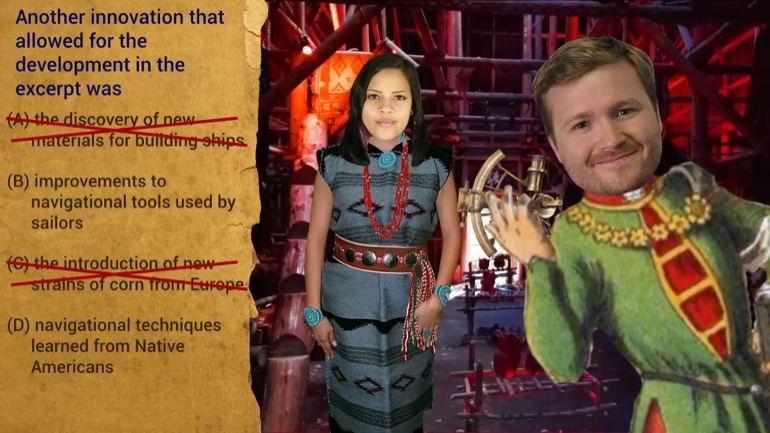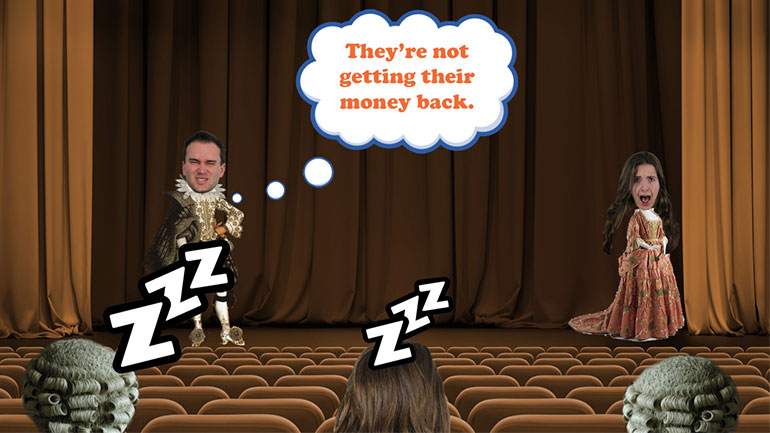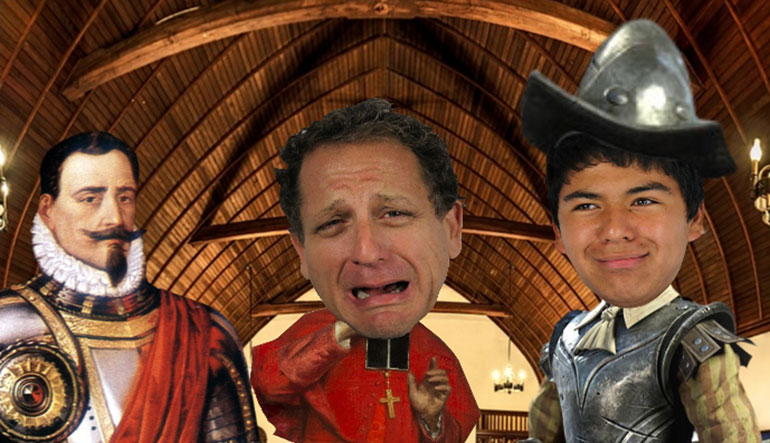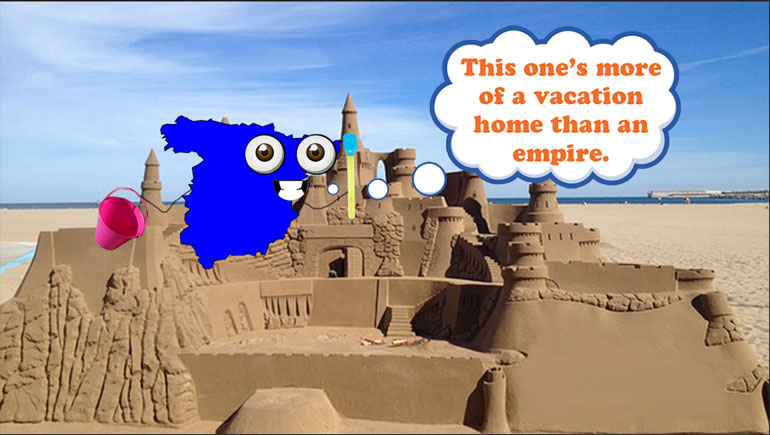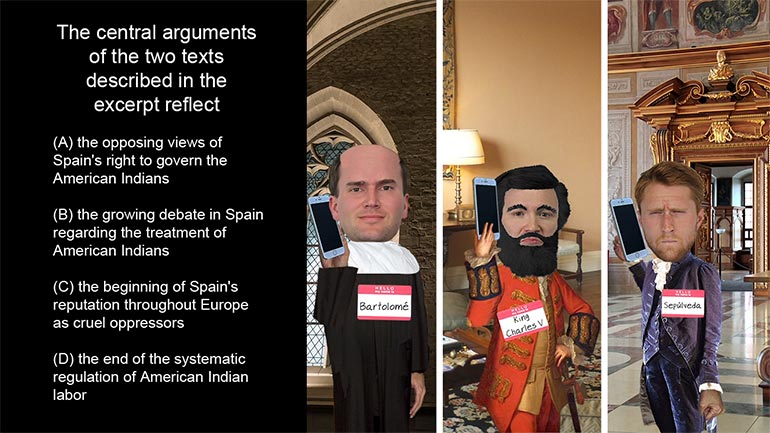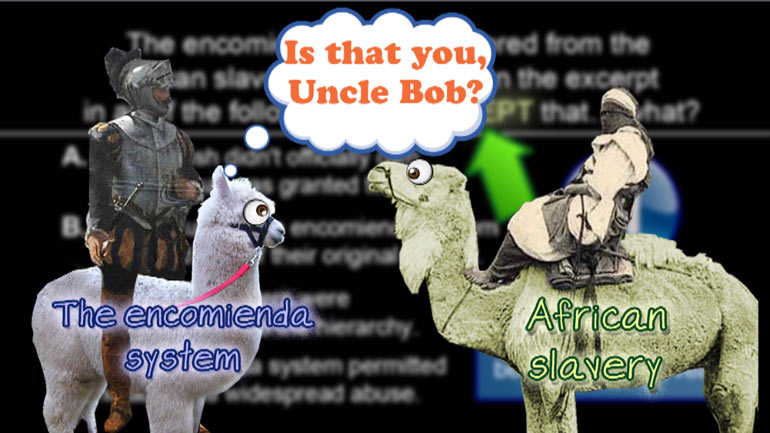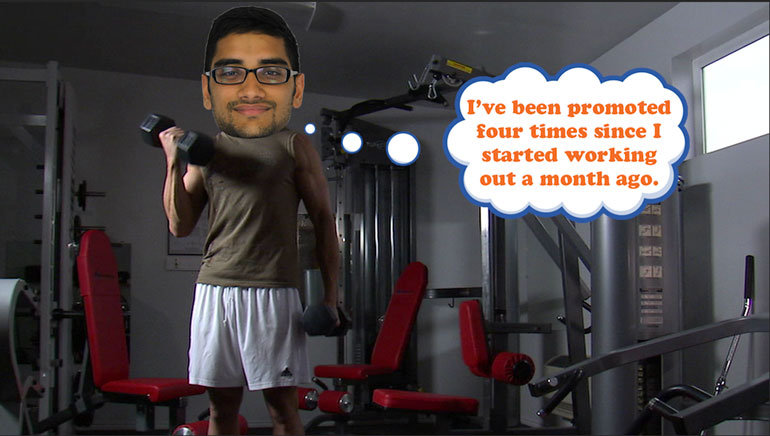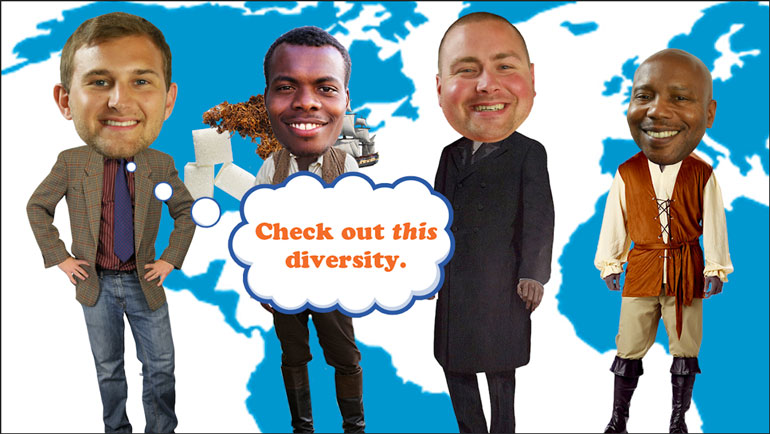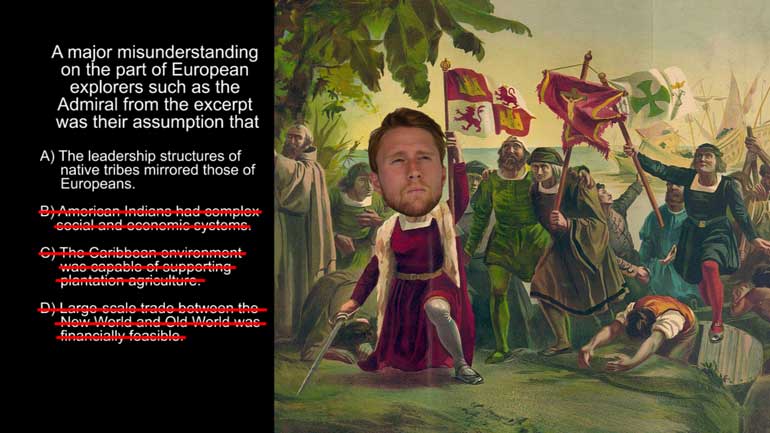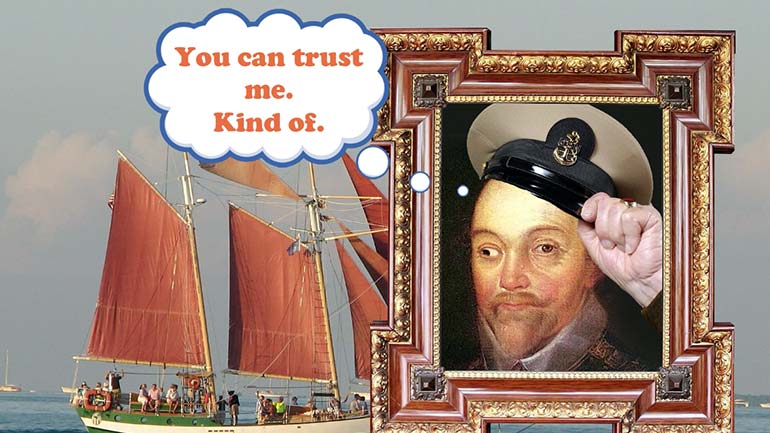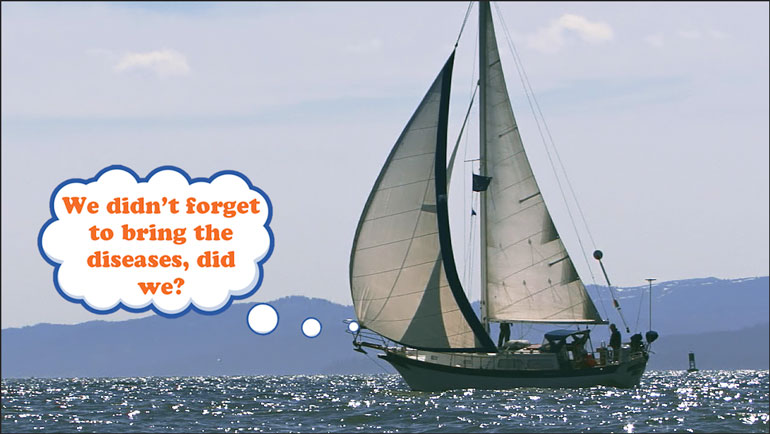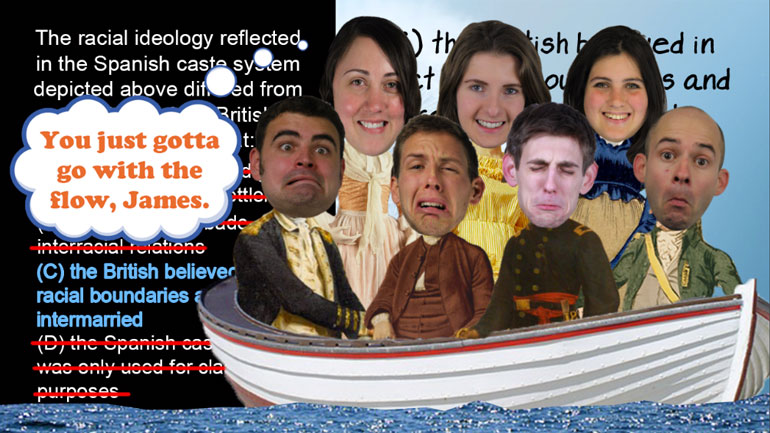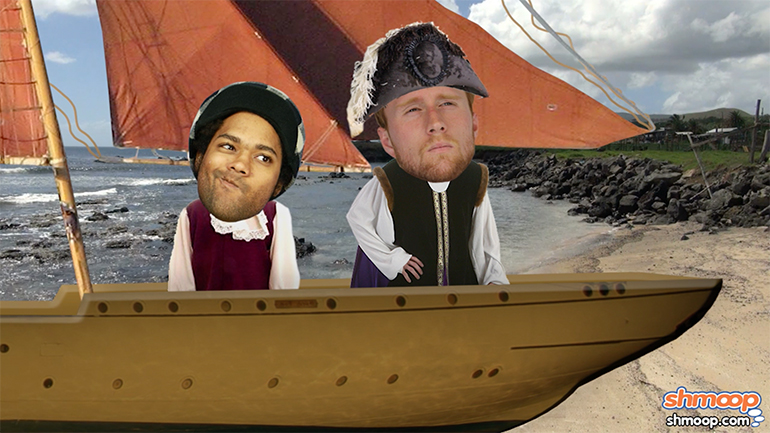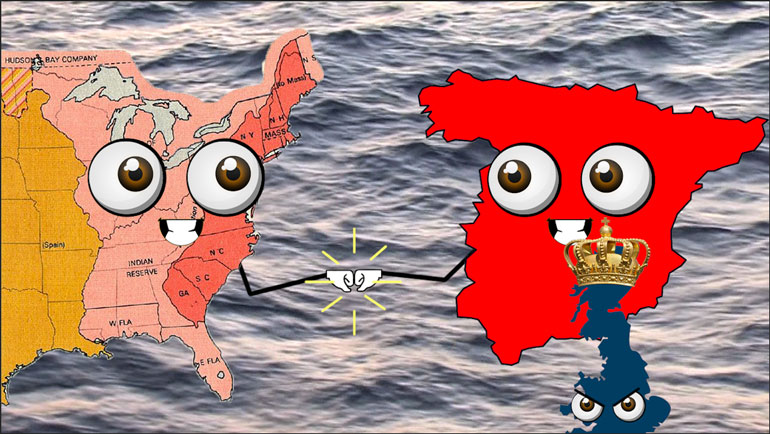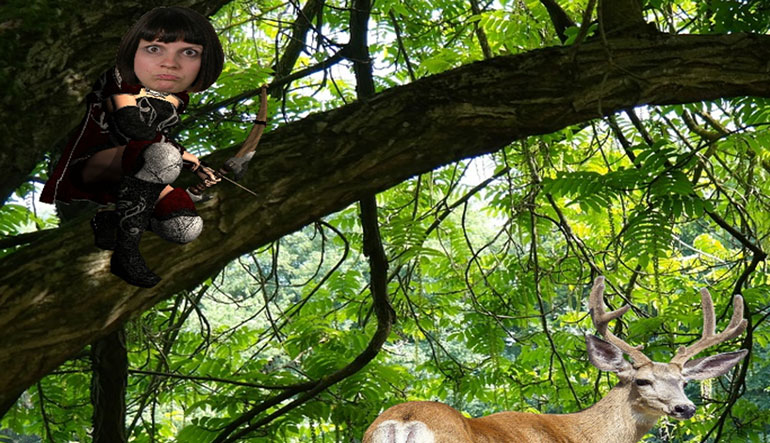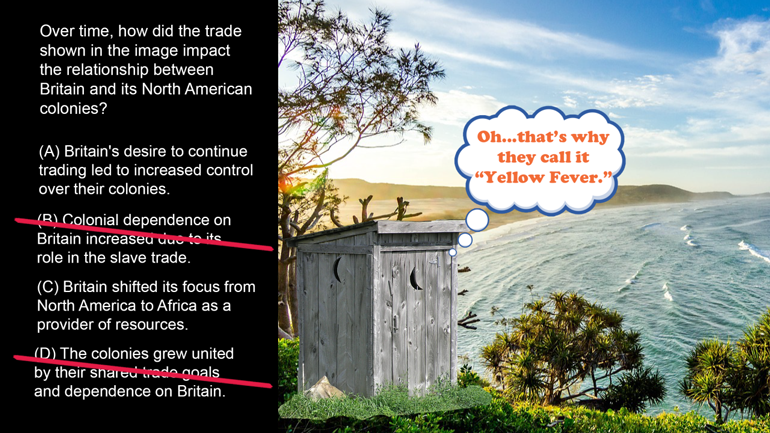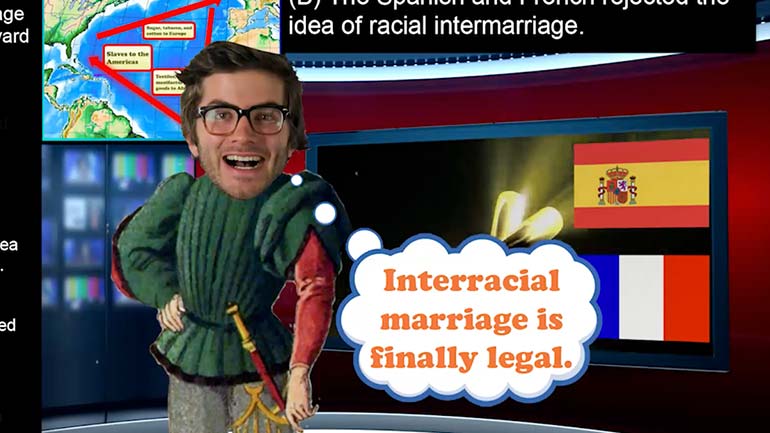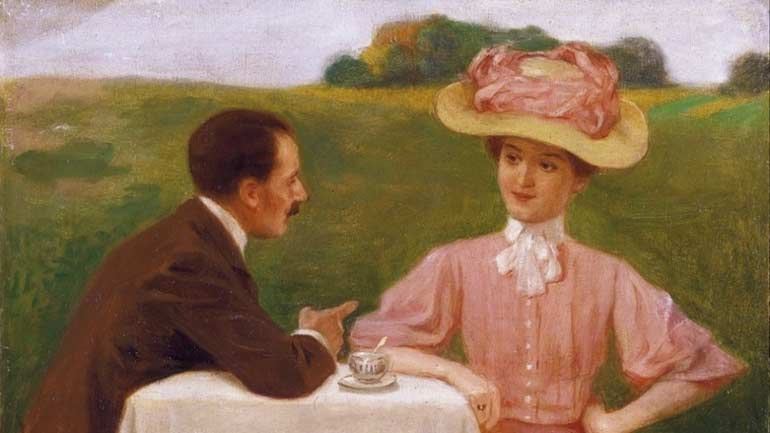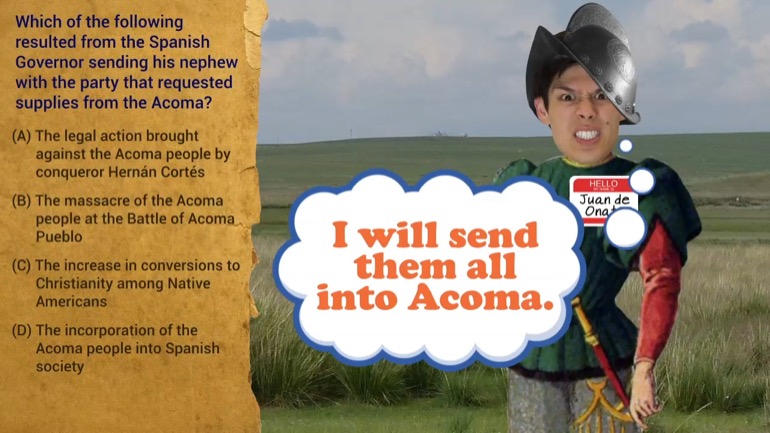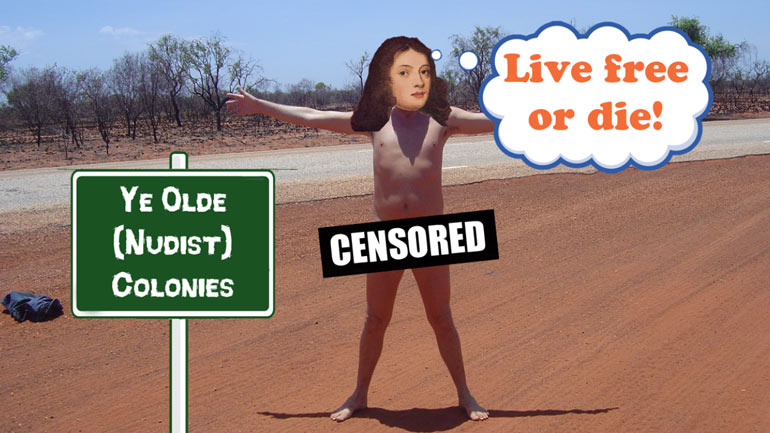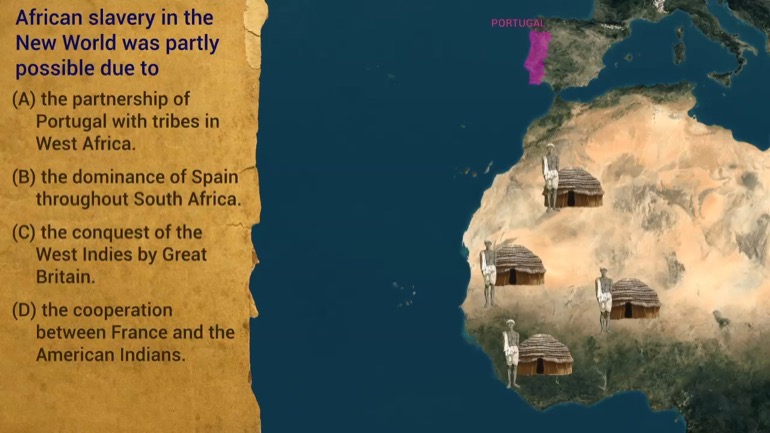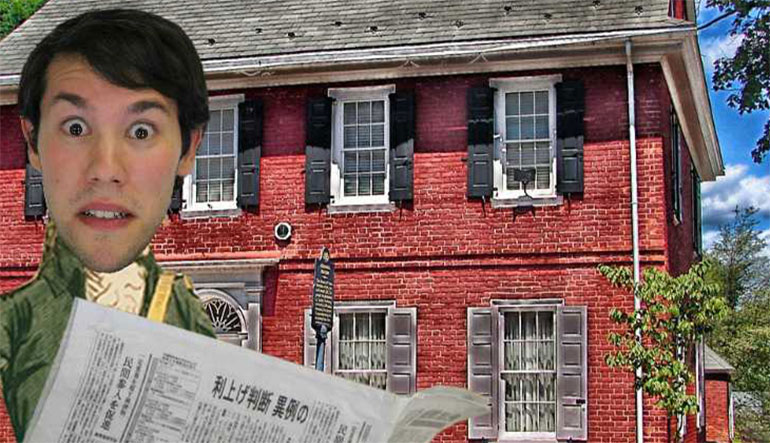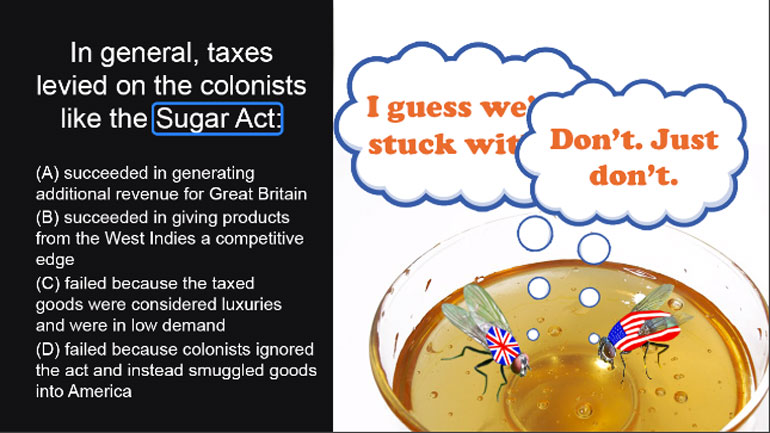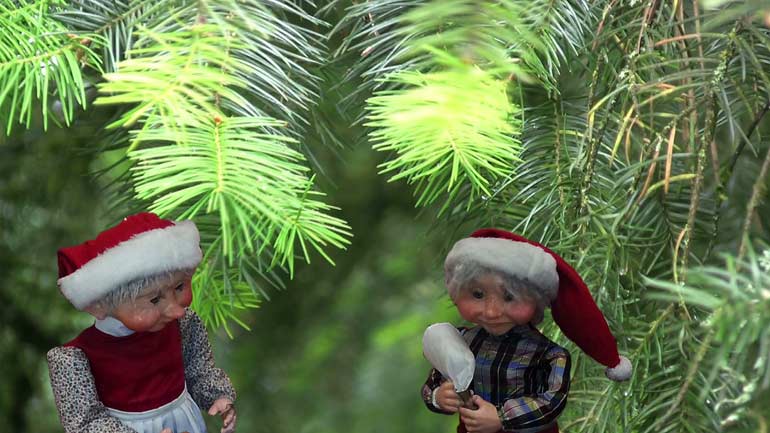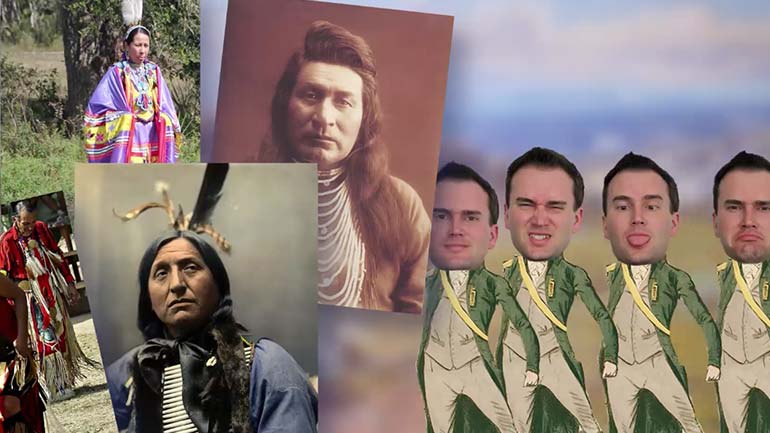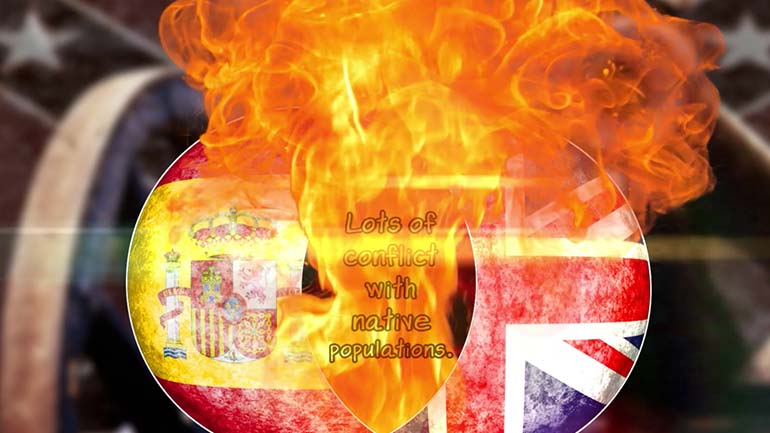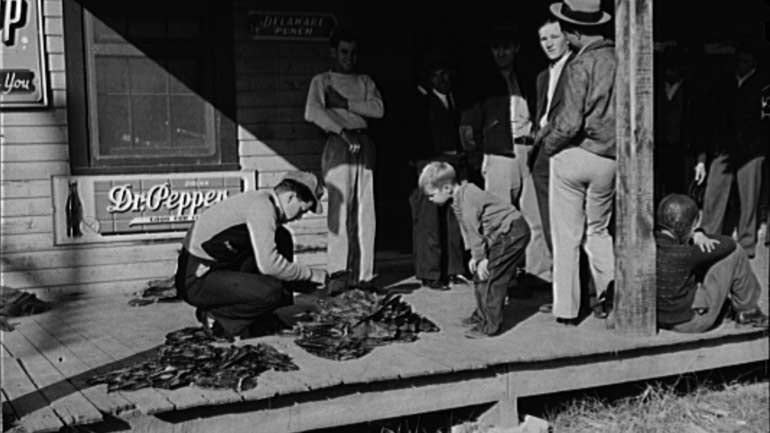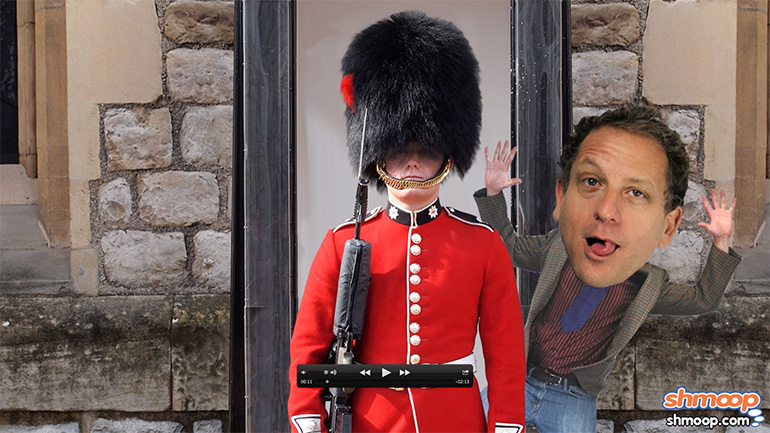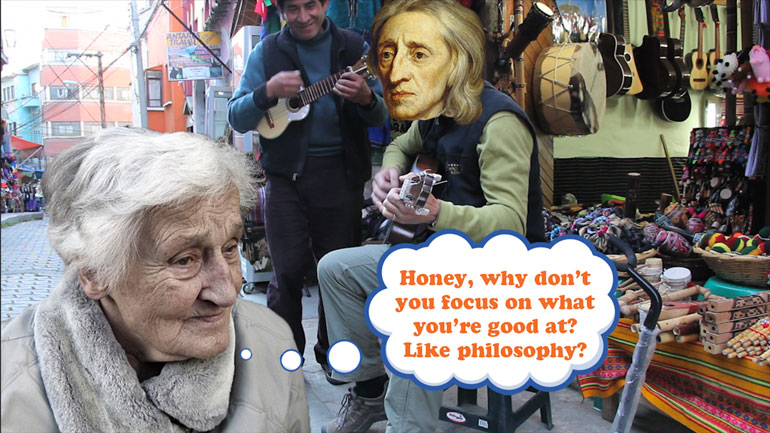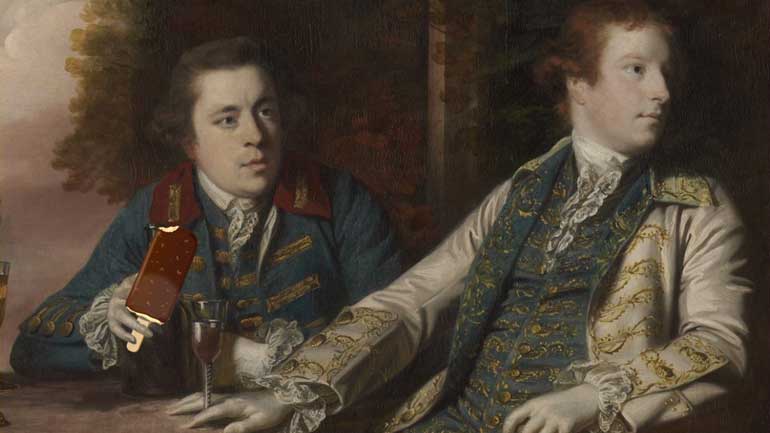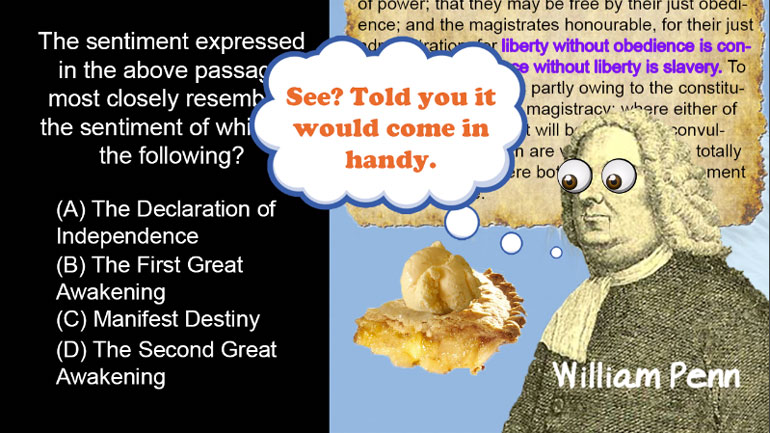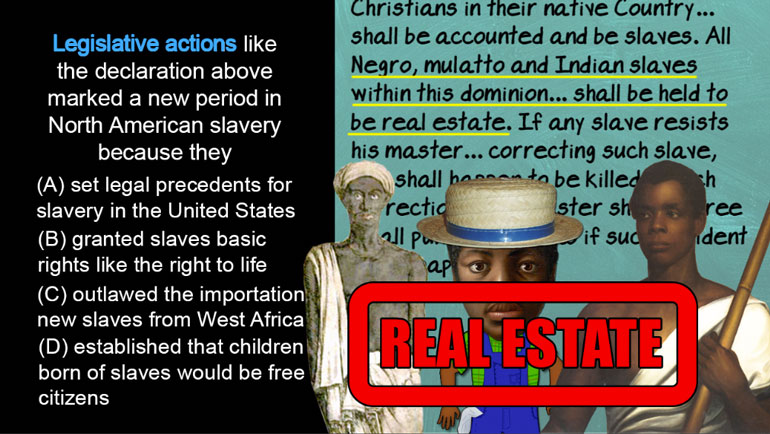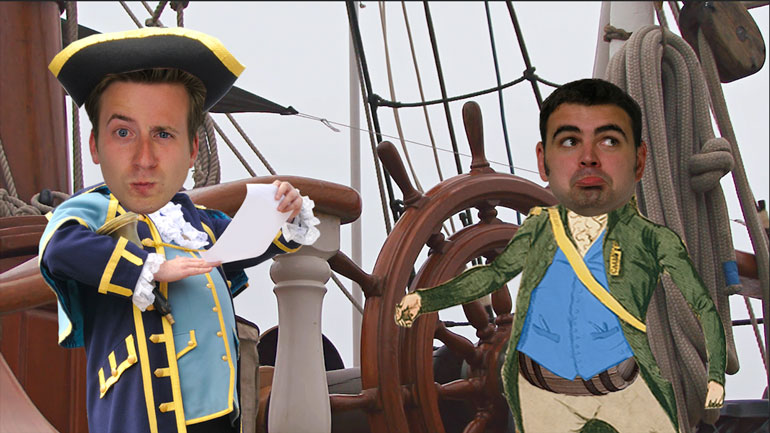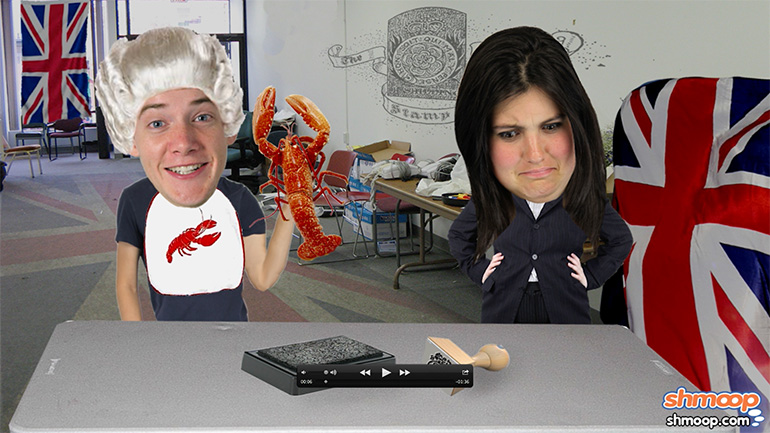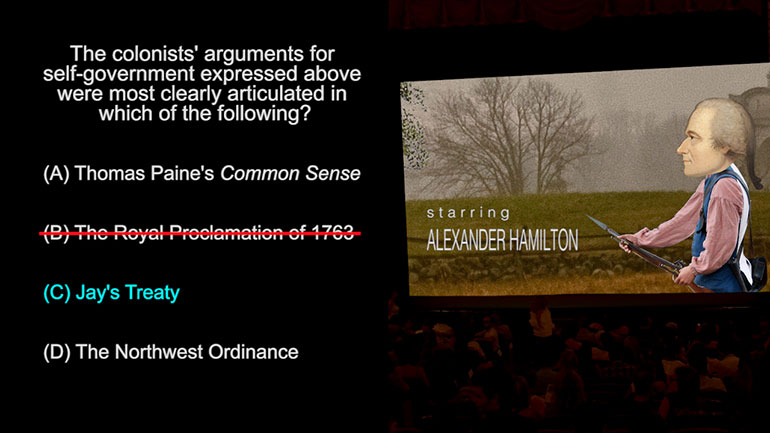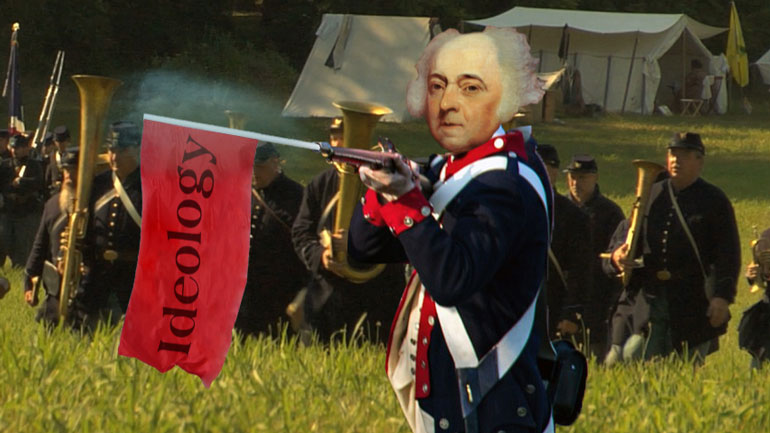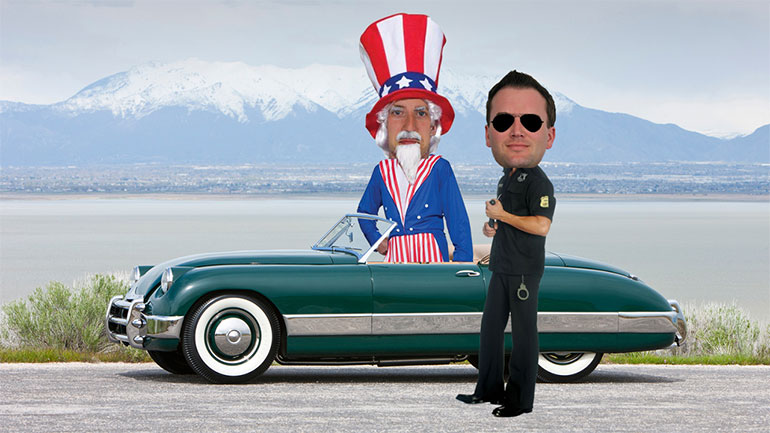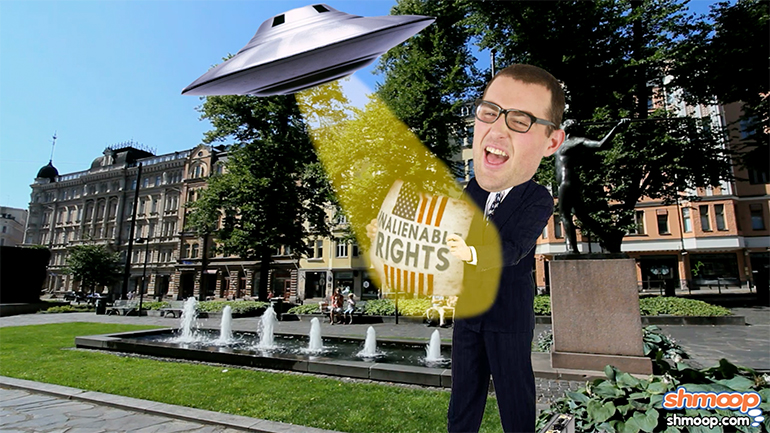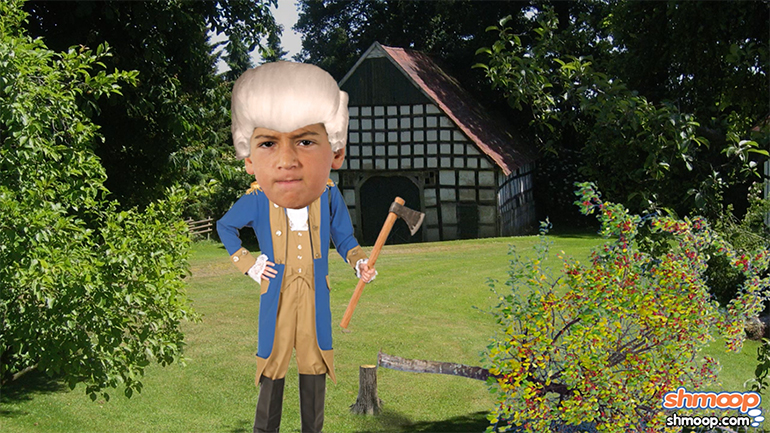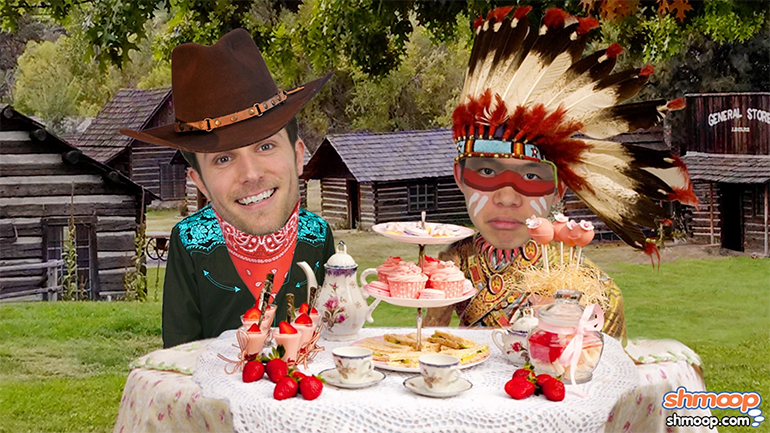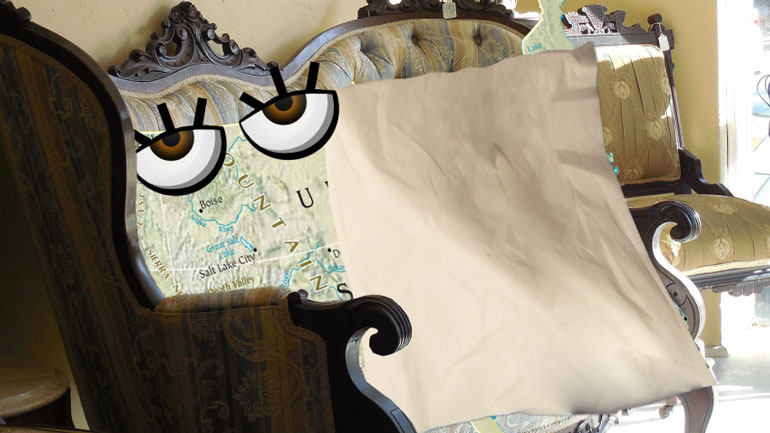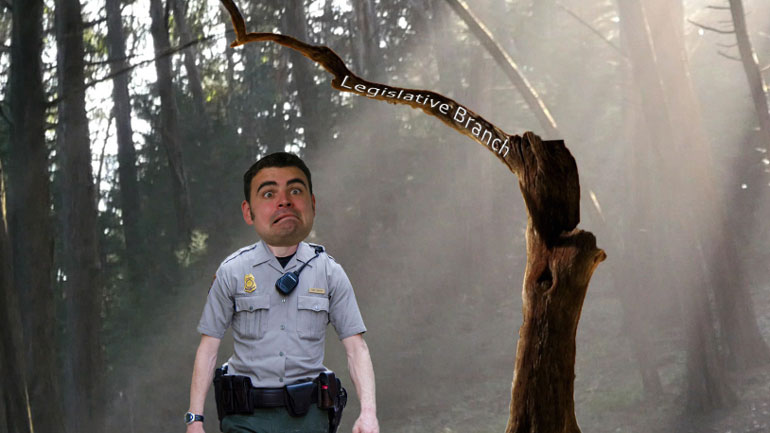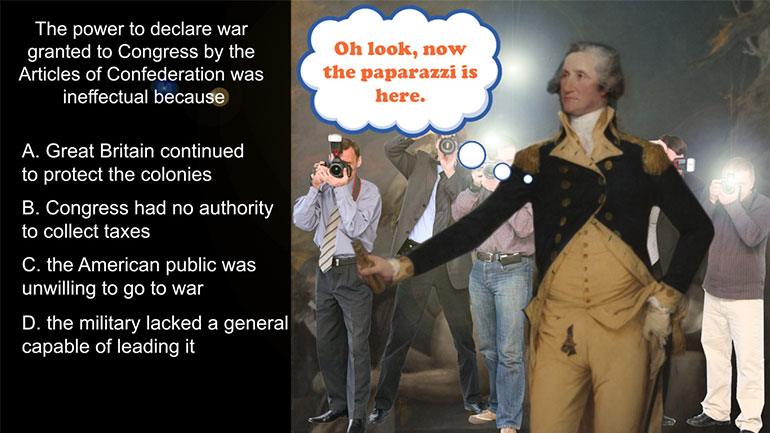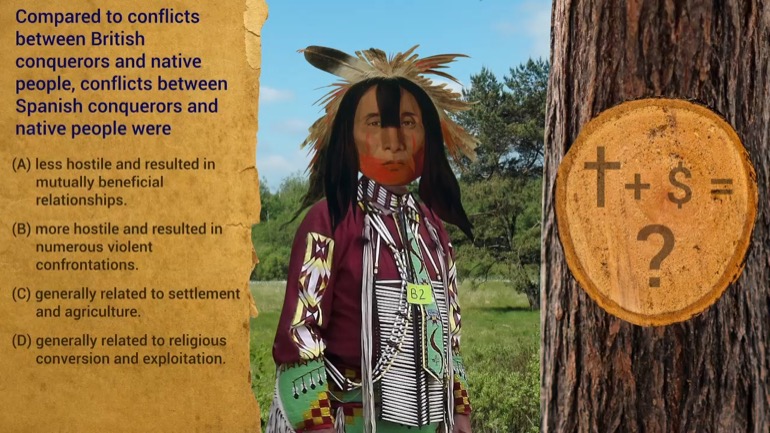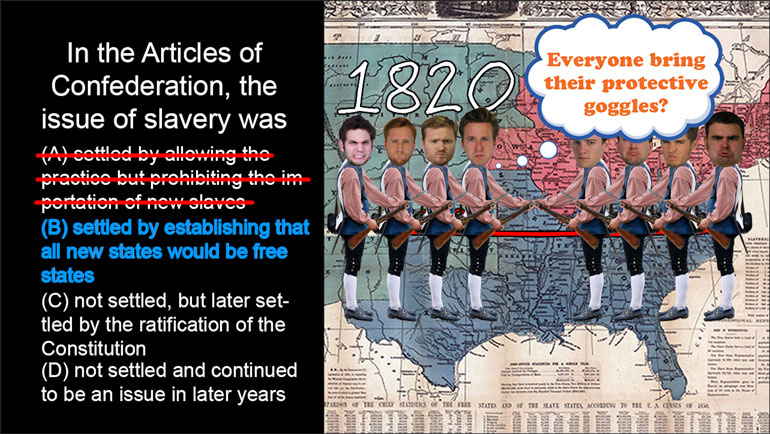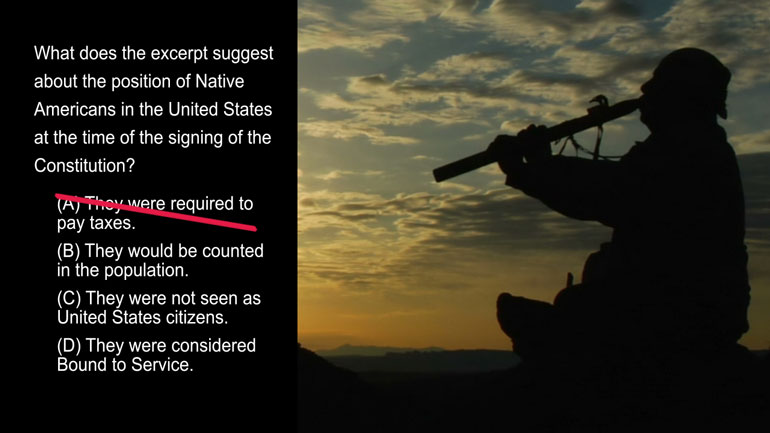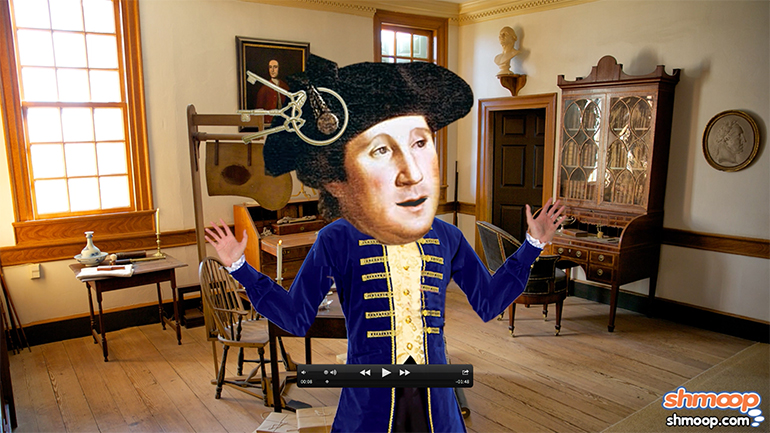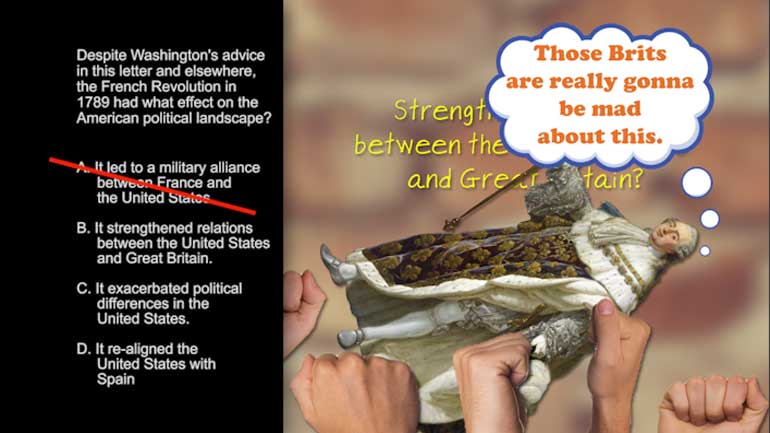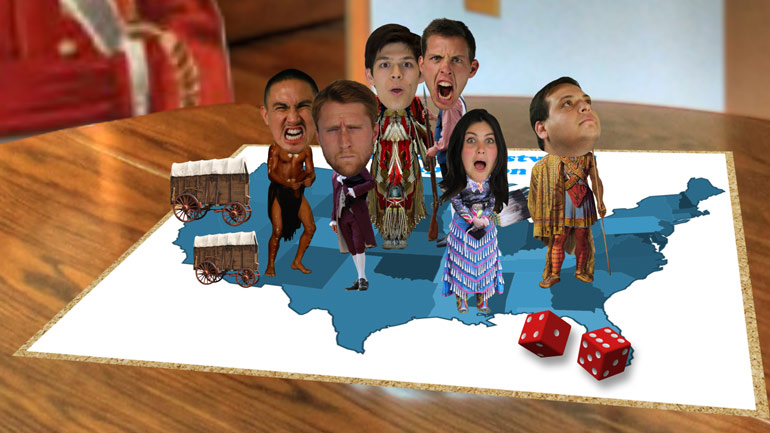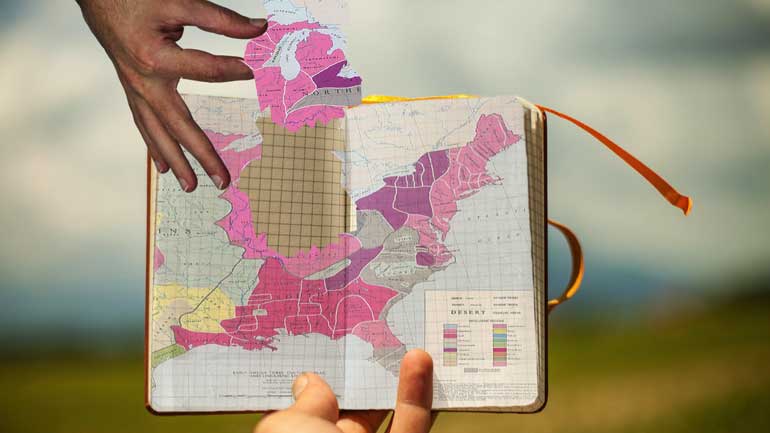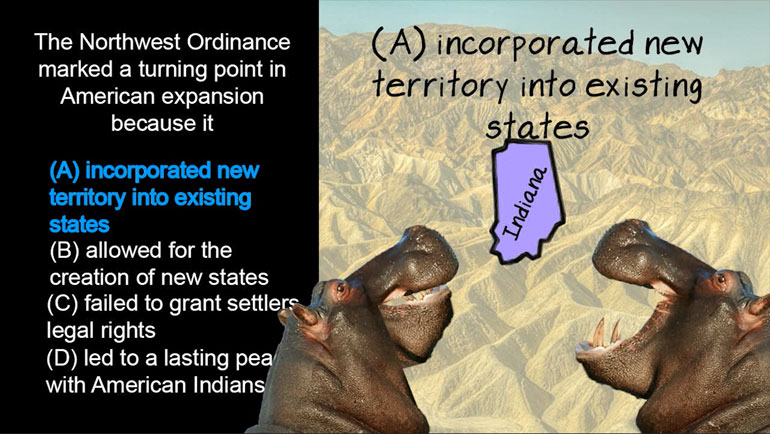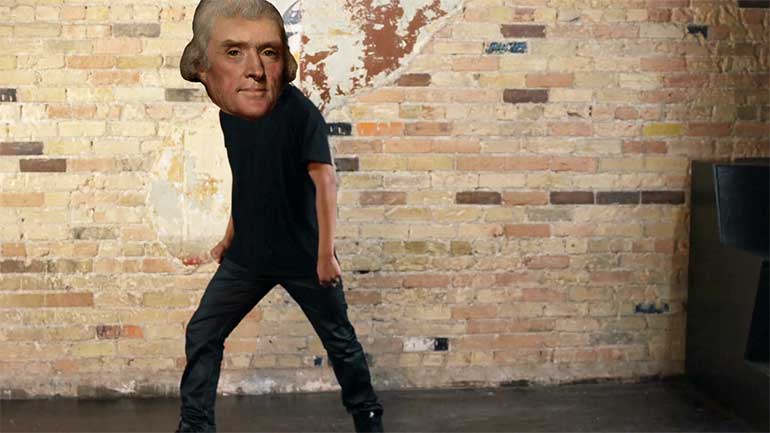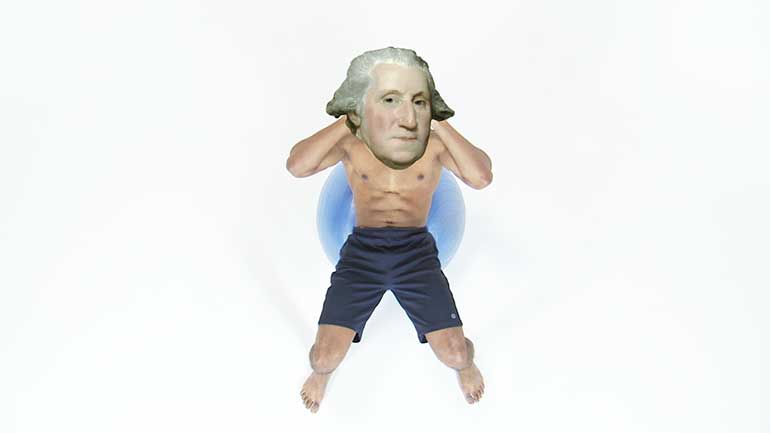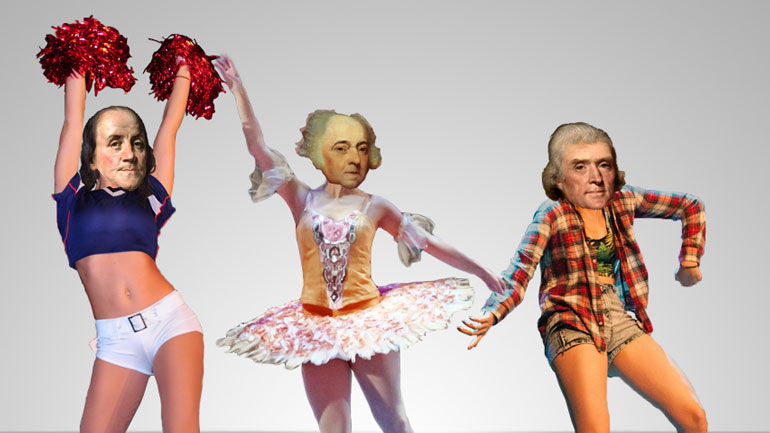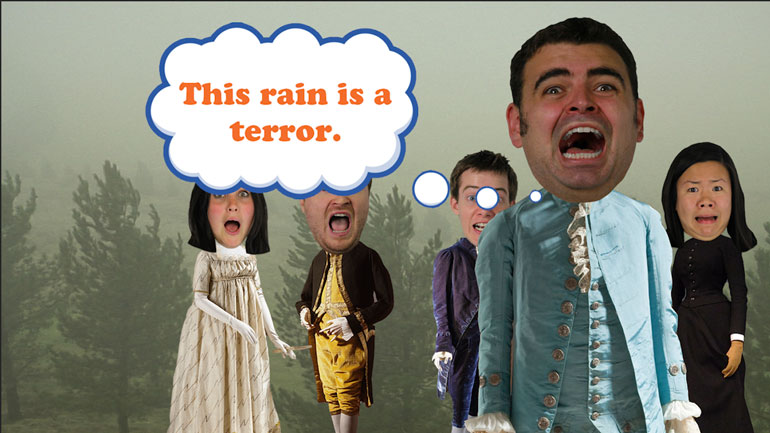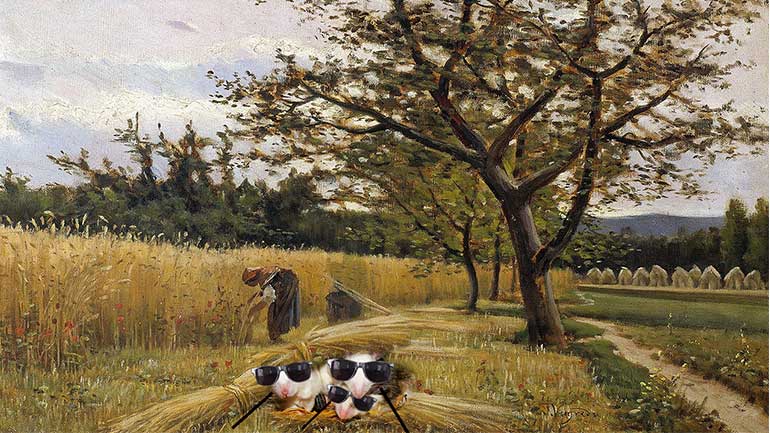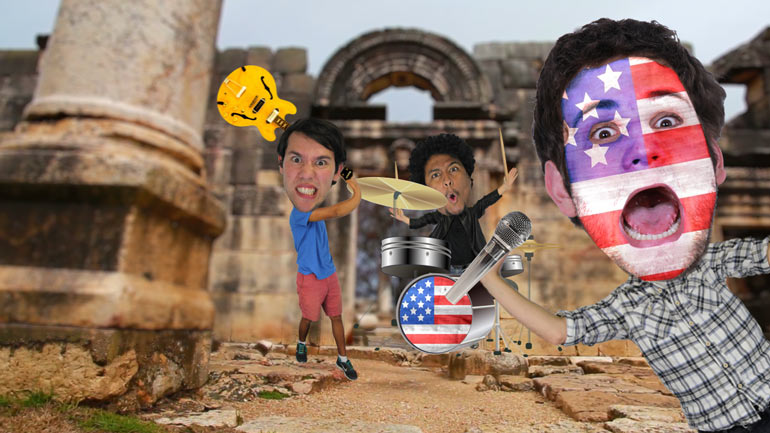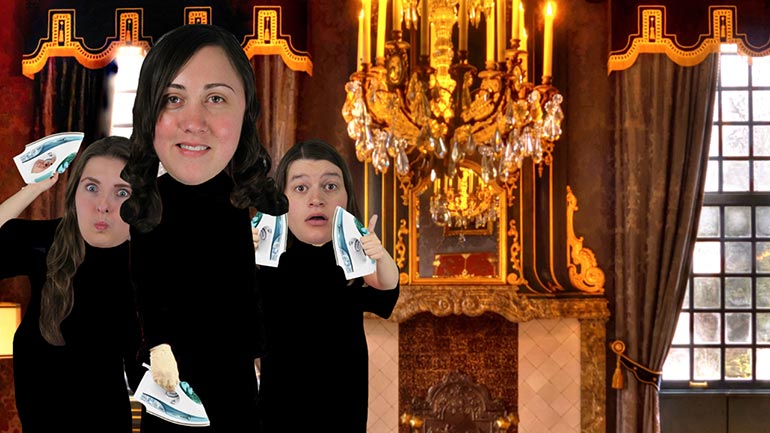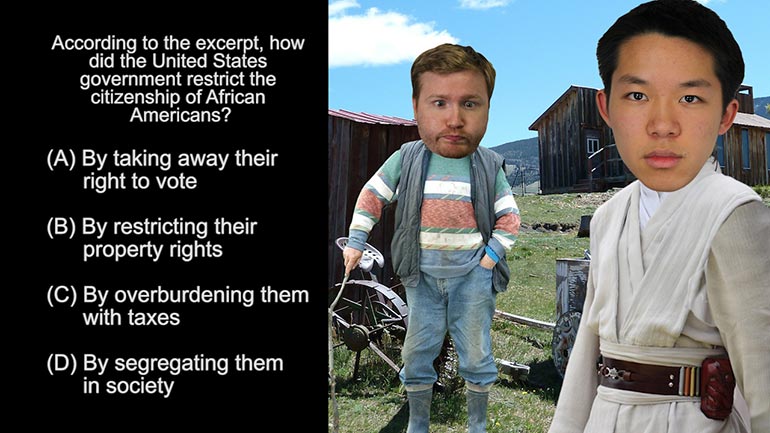ShmoopTube
Where Monty Python meets your 10th grade teacher.
Search Thousands of Shmoop Videos
AP U.S. History Videos 273 videos
Today's lesson: The Civil War. A war may be civil, but it's never pretty. Well, aside from the Pretty Pink Fairy Wars of '93...but no one seems to...
AP U.S. History Period 1: 1491-1607 Drill 3, Problem 2. The cultivation of maize, depicted in the image, also played a significant role in which of...
AP U.S. History Exam 2.2. Prior to European contact, why was it necessary for the societies of the "Plains" region on the map to live a mobile life...
AP U.S. History Exam 2.8 166 Views
Share It!
Description:
AP U.S. History Exam 2.8. Which of the following had the greatest impact on colonial resistance to the Navigation Acts?
Transcript
- 00:00
[ musical flourish ]
- 00:03
And here's your Shmoop du jour, brought to you by colonial resistance,
- 00:06
a growing protest movement amongst architecture students.
- 00:11
All right, give this excerpt a look.
- 00:12
[ mumbles ]
Full Transcript
- 00:19
All right, that was the Navigation Acts.
- 00:20
And the question:
- 00:21
Which of the following had the greatest impact on colonial resistance
- 00:25
to the Navigation Acts?
- 00:27
And here are your potential answers.
- 00:29
Hmm. All right, well, different kind of "acts." Get that out of here.
- 00:32
[ mumbles ]
- 00:36
All right, here we go.
- 00:37
When colonists discovered that sugar and rum
- 00:40
would either become more expensive
- 00:42
or entirely unavailable,
- 00:44
things suddenly soured between the motherland and its
- 00:47
colonial no-longer-sweethearts.
- 00:50
So was this growing resistance to the Navigation Acts
- 00:53
further impacted by B -
- 00:55
movement into Western lands? Hmm.
- 00:59
Well, as colonists moved further inland,
- 01:01
they started to develop trading relationships with Native Americans,
- 01:04
but this exploration was relatively separate from issues
- 01:07
with the Navigation Acts.
- 01:09
That takes B and C off the market.
- 01:12
Could colonial resistance to the Navigations Acts have been
- 01:15
affected by D -
- 01:16
the strength of the Anglican Church?
- 01:19
Huh. Well, many of these colonists came to the New World
- 01:22
to break away from the Anglican Church,
- 01:24
so they certainly wouldn't have wanted religious officials
- 01:27
to intercede on their behalf.
- 01:29
So if colonists weren't praying for D,
- 01:31
the source of colonial resistance to the Navigation Acts
- 01:34
must have been A - evolving ideas of liberty.
- 01:39
Well, around the same time colonists started kvetching over
- 01:42
trade restrictions, a little thing called the Enlightenment was
- 01:45
bringing all kinds of crazy ideas about liberty to the Western world.
- 01:49
Encouraged by these new philosophies, colonists
- 01:51
joined together to resist the renewal of the Navigation Acts.
- 01:54
So the answer is A.
- 01:56
Despite their varied religious backgrounds, colonists
- 01:58
quickly found ways to navigate their differences,
- 02:00
facing the sea of British trade restrictions in a...
- 02:03
united state.
- 02:05
[ woo! ]
Related Videos
Ever heard of a "living document"? They eat and breathe just like the rest of us! They even walk around on their own two legs. Okay, fine—maybe t...
If the Puritans had gotten their way, religion would play a much larger role in lawmaking these days. Want to know more? Watch the video for all th...
What happened between the creation of the Articles of Confederation and the ratification of the current U.S. Constitution? This video analyzes the...
The Modernists thought the world had a lot of problems, and they were intent on fixing them—or at least talking about fixing them. Unfortunately,...
This video explains Federalism and the quest for a fair balance between state and national power. It covers the progression and compromises of Fede...

